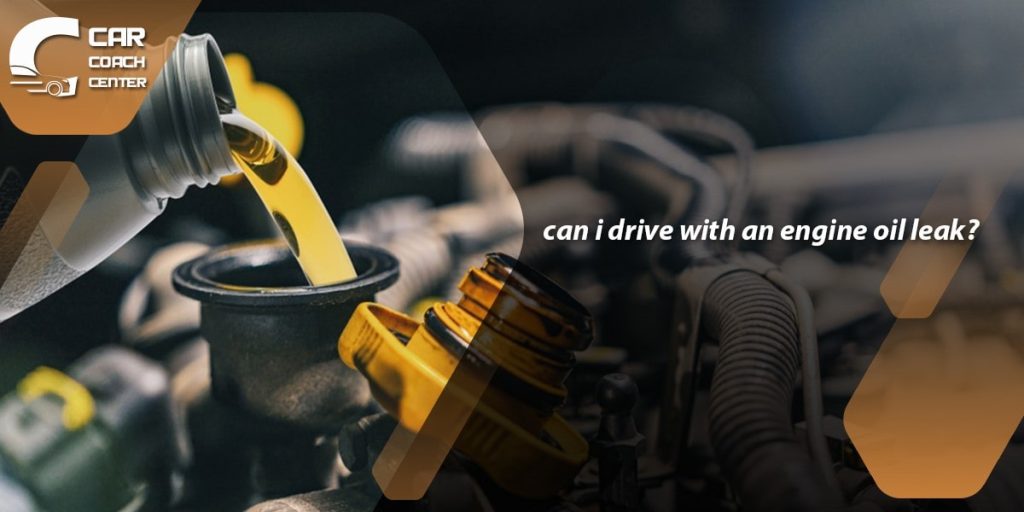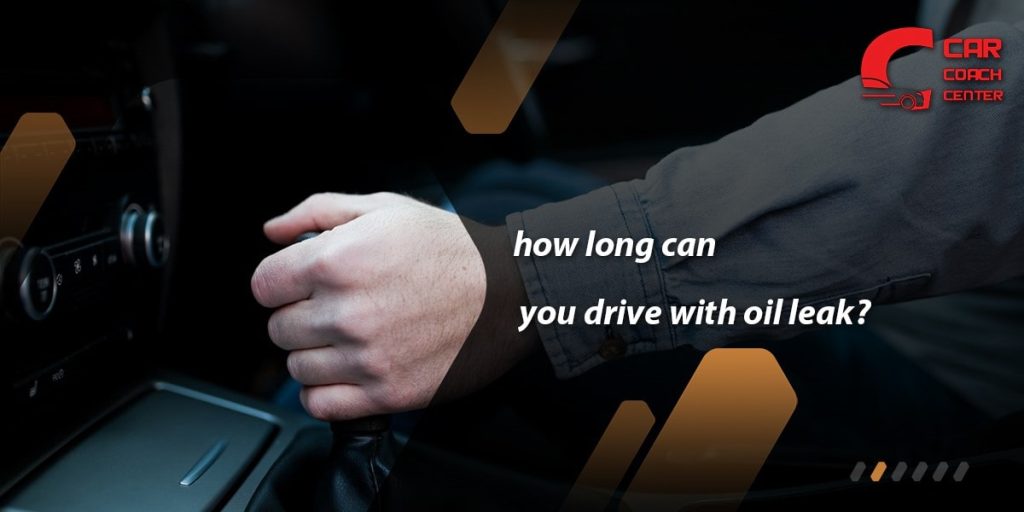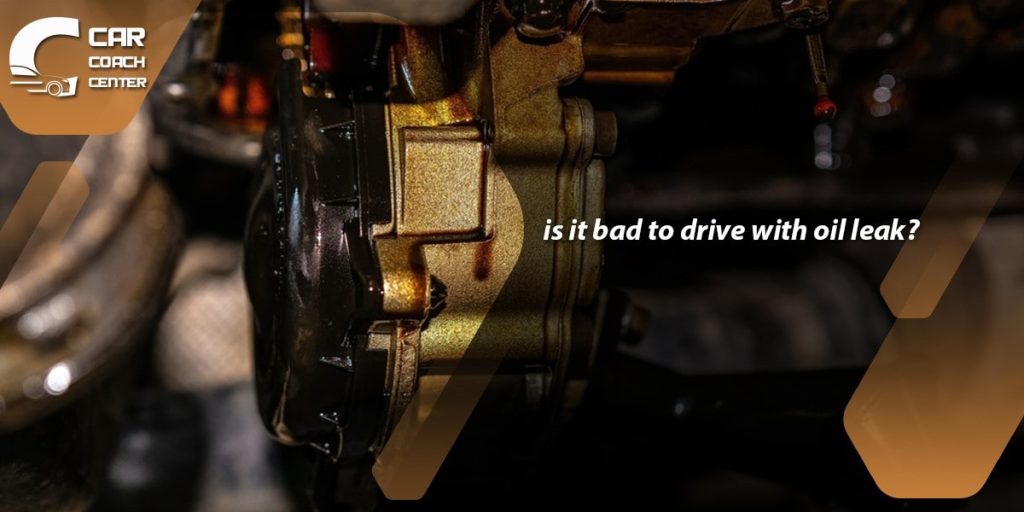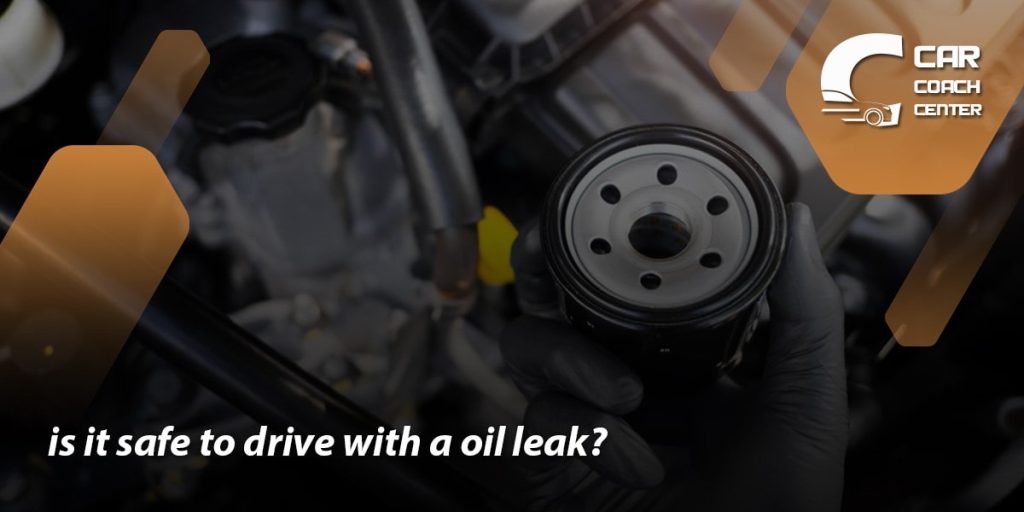Can You Drive With an Oil Leak
Maintaining a vehicle’s optimal performance and longevity requires regular attention to various aspects, including fluids. One crucial fluid is engine oil, vital in lubricating the engine’s moving parts and ensuring smooth operation. However, encountering an oil leak can throw a wrench into the works, raising concerns about the safety and drivability of the vehicle.
The question arises: can you drive with an oil leak? In this article, we will explore the implications of driving with an oil leak, discussing the signs and symptoms of such leaks, the potential consequences of ignoring them, and how to assess the severity of different oil leaks.

Additionally, we will provide temporary solutions to manage an oil leak while on the road and offer guidance on finding the right mechanic to address the issue. Finally, we will conclude with preventive measures to help you avoid oil leaks and maintain the health of your vehicle’s engine in the long run. So, let’s delve into this topic and comprehensively understand driving with an oil leak.
Signs and Symptoms: How to Identify an Oil Leak
Detecting an oil leak in your vehicle is crucial for addressing the issue promptly and preventing further damage. Here are some common signs and symptoms that can help you identify an oil leak:
Oil spots or puddles under the vehicle
One of the most apparent signs of an oil leak is the presence of oil spots or puddles underneath the car after it has been parked for some time. These spots are often brown or black and have a greasy texture.
Burning oil smell
A strong and persistent odor of burning oil while driving or after parking could indicate an oil leak. The smell is usually distinctive and can be described as burnt or acrid.
Low oil levels
Regularly checking your vehicle’s oil level is an essential maintenance practice. If you consistently find that the oil level is significantly lower than the recommended amount, it could indicate an oil leak.
Engine overheating
Engine overheating can be caused by various issues, including low oil levels due to a leak. If your engine temperature gauge rises above the normal range frequently, inspecting for an oil leak as a potential cause is crucial.
Exhaust smoke
An oil leak can sometimes lead to blue or grayish smoke from the exhaust pipe. This occurs when oil seeps into the combustion chamber and gets burned along with the fuel, resulting in visible smoke.
Unusual engine noises
Insufficient lubrication due to an oil leak can cause friction and increased wear on the engine components. As a result, you may notice unusual engine noises, such as knocking or ticking sounds, indicating potential damage.
The Consequences of Ignoring an Oil Leak
While it may be tempting to overlook a small oil leak or postpone repairs, ignoring this issue can have severe consequences for your vehicle and wallet. Here are the potential repercussions of neglecting an oil leak:
Engine Damage
Engine oil plays a critical role in lubricating the various moving parts of the engine, reducing friction, and dissipating heat. An oil leak can result in insufficient lubrication, causing increased friction and accelerated wear and tear on vital engine components. Over time, this can damage engines, including worn-out bearings, piston rings, and even seized engines. Repairing or replacing a damaged engine can be extremely costly.
Reduced Performance and Efficiency
As an oil leak compromises the lubrication system, the engine’s performance and efficiency can suffer. You may experience decreased power, sluggish acceleration, and reduced fuel efficiency. Ignoring an oil leak can deteriorate engine performance, affecting your overall driving experience and increasing fuel consumption.
Safety Risks
Operating a vehicle with an oil leak poses safety risks. The leaked oil can drip onto hot engine parts, increasing the fire risk. It can also find its way onto the road surface, making it slippery and potentially causing accidents. An oil leak that leads to engine failure while driving can result in a sudden loss of power and control, endangering you and other road users.
Expensive Repairs
Addressing an oil leak promptly is generally more cost-effective than dealing with the aftermath of engine damage. Ignoring the issue can escalate the damage, requiring extensive repairs or a complete engine replacement. Such repairs can be exorbitantly expensive, putting a strain on your finances.
Environmental Impact
Oil leaks can contaminate the environment, especially if they reach water bodies or soil. Oil is toxic to plants, animals, and aquatic life. By ignoring an oil leak, you not only risk damaging your vehicle but also contribute to environmental pollution.
Assessing the Severity: Understanding Different Types of Oil Leaks
Not all oil leaks are created equal. The severity of an oil leak can vary depending on its location, leakage rate, and the affected components. Understanding the different types of oil leaks can help you assess the severity of the issue. Here are some common types of oil leaks and their implications:
Valve Cover Gasket Leak
The valve cover gasket is responsible for sealing the valve cover to prevent oil from leaking. If this gasket deteriorates or becomes damaged, oil can seep through, resulting in a valve cover gasket leak. While this type of leak typically doesn’t cause significant damage, it can lead to oil loss and potential engine contamination if addressed.

Oil Pan Leak
The oil pan is located at the bottom of the engine and holds the engine oil. A faulty oil pan gasket or a damaged oil pan can result in an oil pan leak. Depending on the severity, an oil pan leak can lead to significant oil loss, potentially causing engine damage if the oil level drops too low. It is important to address this type of leak to prevent further complications promptly.
Rear Main Seal Leak
The rear main seal is located at the back of the engine, where the crankshaft connects to the transmission. A worn-out or damaged rear main seal can result in an oil leak. This type of leak is more severe as it can lead to substantial oil loss and may require professional intervention to replace the seal.
Oil Filter Leak
The oil filter removes contaminants from the engine oil. If the oil filter is not installed correctly or becomes damaged, it can result in an oil filter leak. While this type of leak may not cause significant damage, it can lead to oil loss and potentially compromise the engine’s filtration system if not addressed promptly.
Front Crankshaft Seal Leak
The front crankshaft seal is located at the front of the engine, where the crankshaft connects to the timing cover. A deteriorated or faulty front crankshaft seal can result in an oil leak. This type of leak is important to address as it can lead to oil loss, potential engine contamination, and even timing belt or chain damage.
Temporary Solutions: What to Do if You Discover an Oil Leak on the Road
Discovering an oil leak while on the road can be concerning, but you can employ a few temporary solutions to minimize the damage and safely reach your destination. Here are some steps to take if you find yourself facing an oil leak on the road:
Stay calm and assess the situation
As soon as you notice an oil leak, remain calm and avoid panic. Assess the severity of the leak by checking the oil pressure gauge or monitoring the dashboard warning lights. If the gauge shows dangerously low oil pressure or the warning lights indicate an imminent issue, it may be best to pull over and seek immediate professional assistance.
Safely pull over and park
If the leak appears minor and you can safely continue driving, find a suitable place to pull over, away from traffic. Choose a level surface to park your vehicle, as this can help prevent further complications.
Check the oil level
Open the hood and locate the dipstick with the engine turned off. Carefully remove the dipstick, wipe it clean with a cloth, reinsert it fully, and then pull it out again to check the oil level. If the oil level is critically low or empty, it is essential to refrain from driving further and seek assistance.
Add oil, if necessary
If the oil level is slightly low but not critically empty, consider adding oil as a temporary measure. Keep a spare bottle of the recommended oil for your vehicle in the trunk for emergencies. Add the oil gradually, being mindful not to overfill the engine. It’s important to note that this is a temporary solution, not a substitute for proper repairs.
Monitor the leak
Keep an eye on the oil leak and its leakage rate while parked. If the leak worsens or you notice a sudden increase in oil loss, you should avoid driving further and arrange for towing or professional assistance.
Seek professional help
Consult a qualified mechanic or a trusted repair shop to address the oil leak as soon as possible. Temporary solutions are not meant to be long-term fixes, and a professional must diagnose and repair the issue to prevent further damage and ensure your safety on the road.

Professional Help: Finding the Right Mechanic for Oil Leak Repairs
When addressing an oil leak in your vehicle, seeking the expertise of a qualified mechanic is crucial. Here are some essential steps to help you find the right mechanic for oil leak repairs:
Ask for recommendations
Start by seeking recommendations from friends, family, and colleagues who have had positive experiences with reputable mechanics. Personal referrals can provide valuable insights into the quality of service and professionalism of the mechanics they have worked with.
Check online reviews and ratings
Utilize online resources such as review websites, forums, and social media platforms to gather feedback and reviews from other customers. Look for consistent positive reviews and pay attention to recurring issues or complaints regarding oil leak repairs.
Verify credentials and certifications
Ensure the mechanics you consider have the necessary certifications and qualifications. Look for credentials such as Automotive Service Excellence (ASE) certification, which indicates that the mechanic has met industry standards of knowledge and expertise.
Inquire about the experience
Ask potential mechanics about their experience, specifically with oil leak repairs. Determine if they have worked on vehicles similar to yours and have access to the necessary tools and equipment to diagnose and fix the issue effectively.
Request estimates
Contact a few reputable mechanics and explain the oil leak issue you are facing. Request detailed estimates for the repair, including the cost of parts and labor. Remember that while price is important, it should not be the sole determining factor. Consider the mechanic’s expertise, reputation, and the quality of their artistry.
Seek warranties and guarantees
Inquire about any warranties or guarantees the mechanic offers for their repair work. Reputable mechanics often provide warranties that cover parts and labor for a specified period, giving you peace of mind regarding the quality of the repair.
Trust your instincts
When interacting with potential mechanics, trust your instincts. Please consider their professionalism, communication skills, and willingness to address your concerns. A good mechanic should be transparent, patient, and willing to explain the repair process to you.

Preventive Measures: Tips for Avoiding Oil Leaks in the Future
Preventing oil leaks is essential for maintaining the health and longevity of your vehicle’s engine. By following these preventive measures, you can minimize the risk of oil leaks and potentially save yourself from costly repairs:
Regularly check oil levels and quality
Make it a habit to check your vehicle’s oil levels regularly using the dipstick. Ensure that the oil level is within the recommended range and that the oil appears clean and clear. If you notice any drastic changes in oil color or consistency, it may indicate an underlying issue that needs attention.
Change oil and oil filter on schedule
Adhere to the manufacturer’s recommended oil change intervals and replace the filter accordingly. Fresh, clean oil and a properly functioning filter help maintain optimal lubrication and reduce the chances of leaks caused by degraded oil or clogged filters.
Inspect and maintain gaskets and seals
Gaskets and seals are crucial in preventing oil leaks. Periodically inspect the valve cover gasket, oil pan gasket, rear main seal, and front crankshaft seal for any wear, cracks, or leaks. Replace these components as necessary to maintain a proper seal.
Avoid overfilling or underfilling oil
Follow the manufacturer’s guidelines for the correct oil level. Overfilling the oil can lead to excessive pressure within the engine, potentially causing leaks. Conversely, running with insufficient oil can lead to inadequate lubrication and increased friction, increasing the risk of leaks and engine damage.
Be cautious with additives and sealants
While some additives and sealants claim to fix oil leaks, it is generally best to consult a professional mechanic before using them. The improper use of additives and sealants can lead to further complications or damage.
Keep the engine and surrounding components clean
Regularly clean the engine and its components, as accumulated dirt and grime can accelerate the deterioration of gaskets and seals. Additionally, a clean engine allows for easier detection of any leaks that may occur.
Address leaks promptly
If you notice an oil leak, it is crucial to address it promptly. Ignoring a small leak can lead to more significant issues down the line. Please consult a qualified mechanic to diagnose and repair the leak before it causes further damage.
Conclusion
In conclusion, understanding the implications of driving with an oil leak is vital for every vehicle owner. The signs and symptoms of an oil leak should not be ignored, as the consequences can be severe, including engine damage, reduced performance, safety risks, and expensive repairs.
However, by promptly addressing the issue, seeking professional help, and following preventive measures, such as regular maintenance, proper oil levels, and inspections, you can mitigate the risk of oil leaks and ensure the longevity of your vehicle’s engine. Prevention is key, and staying proactive in maintaining your vehicle’s oil system will save you time and money in the long run.
By visiting carcouchcenter.com, you can find more helpful articles and resources to guide you in keeping your vehicle in optimal condition. Pay attention to an oil leak; take action and prioritize the health of your vehicle today.
Can I drive with a small oil leak?
It is generally not recommended to drive with any oil leak, regardless of size. Promptly addressing the issue is important to prevent further damage.
How do I know if my car has an oil leak?
Look for signs such as oil spots or puddles under the vehicle, a burning oil smell, low oil levels, engine overheating, exhaust smoke, and unusual engine noises.
What should I do if I discover an oil leak?
Pull over safely, check the oil level, add oil if necessary, monitor the leak, and seek professional help to address the issue promptly.


